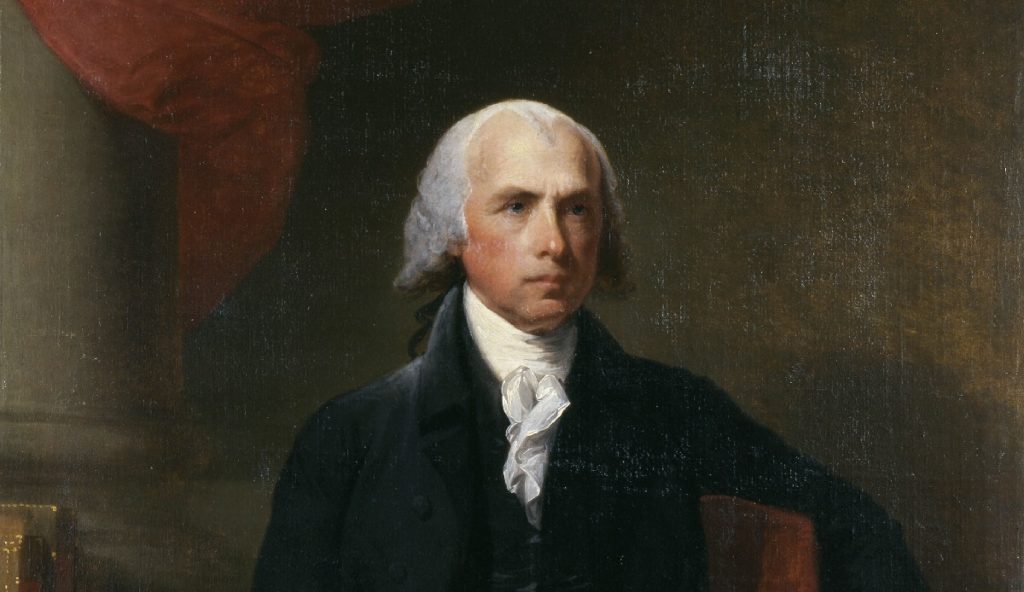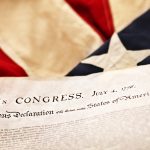This essay is part of a series on Liberalism. See the full collection here.
In my more than 5,000-word essay in the Claremont Review of Books, most of which is a critique of Professor Patrick Deneen’s thought on the American Founding, I spent only the last two paragraphs mentioning the deleterious effects of the teaching that the American Founding was Hobbesian. Yet this is what Deneen, who unambiguously shares this view of the Founding, gives such great attention that he titles his response: “Corrupting the Youth? A Response to Reilly.”
In this scenario, he is Socrates and I am Meletus. However, donning the mantle of Socrates will not help here, because it is not Deneen’s questions (which he has a perfect right to ask) to which I object, but his answers. It is not impiety that I am accusing him of, but of having profoundly mistaken views of the American Founding.
Before returning to the matter of deleterious effects at the end of my response, I first want to address the way in which I reported on Deneen’s misquotation of James Madison in Federalist 10, and then move on to the important substance of our disagreement.
Start your day with Public Discourse
Sign up and get our daily essays sent straight to your inbox.(Mis)Quotation and (Mis)Interpretation
I reread the first draft of my essay and found in it not the slightest insinuation that Deneen, much of whose work I admire, may have willfully engaged in misquotation. I see that later insertions were open to that implication, and I regret having left them there. I apologize for the hurt they caused.
This is not a private quarrel about academic integrity. It is, in the deepest sense, an argument over what defined America at its origins. What did it mean to be constituted as a people in order to “secure these rights,” as the Declaration of Independence announced, of “Life, Liberty and the pursuit of Happiness”? Were these “rights” ordered to any end, or were they autonomous, to be exercised at the will and complete discretion of their possessor? I believe it is incontrovertible that the Founders held that these unalienable rights were morally ordered to and by the very “Laws of Nature and Nature’s God” that bestowed them. Deneen holds otherwise—that these “rights” were fatally infected with a notion of radical individualism and that it was only a matter of time till its ill effects were felt in the moral degeneration from which we suffer today. These are the stakes.
Our argument begins over something that may seem small: the interpretation of a couple of sentences in Federalist 10. Deneen firmly believes that in these sentences Madison was making a statement of foundational principles about the American regime as dedicated to maximizing human diversity. With this interpretation, Deneen thinks he can vindicate his view of the American Founding as a moral poison pill of radical individualism. It is this mistaken overall perspective that drives his misreading of Madison and, indeed, the Founding as a whole.
The real problem is not so much Deneen’s single misquotation (to which he admits), as the argument he tries to make from it and the other Madison references he gives (which I supply in this note[1])—indeed, the argument he continues making in his answer to me. What is clear, especially from Deneen’s reply, is that neither the misquotation nor the other unintentionally misleading statements are the product of malfeasance, but of misinterpretation.
“Faculties” vs. “Diversity of Faculties”
Deneen innocently puts together parts of two adjacent sentences, because he sees no difference between Madison’s use of “faculties” and “diversity of faculties” in them. In his reply to me, he states, “I contend that Madison’s argument in Federalist 10 holds that ‘the first object of government’ is protection of the ‘diversity in the faculties of men.’”
Why does this matter? The key Madison sentence reads: “The protection of these faculties [of men] is the first object of government.” He never says here or anywhere that the purpose of government is the “protection of the ‘diversity in the faculties of men’” as Deneen’s four quotes either state or imply. I try to make the significance of this difference clear in my Claremont essay. However, Deneen does not accept the point I tried to make by differentiating between essences (faculties) and accidents (diversity). He writes:
Reilly believes that the “protection of faculties” is somehow different from the protection of the “diversity in the faculties of men,” claiming we can distinguish “essences” from “accidents.” Madison here insists . . . that the aim of government is not to reduce or eliminate those differences; rather, the first object of government is protection of our “faculties,” which are, by our nature, diverse, as are, by extension, the practical consequences of those differences.
Let me try to explain it this way. People have different capacities of intelligence. The government guarantees the free exercise of intelligence. As a result of this freedom, one may expect, for example, a wide variance in test scores. What the government is protecting as its first object is not the wide variance, which may cause frictions or even factions, but the freedom to think, speak, and learn. Deneen’s line of thought makes it seem as if the first purpose of government is the widest possible variance in test scores, instead of the free exercise of intelligence. This is to mistake the result for the cause.
Here is how he proceeds to make it appear this way. The next phrase from Madison that Deneen quotes (on page 5 of Conserving America?) is that “from the protection of different and unequal faculties of acquiring property, the possession of different degrees and kinds of property immediately results…” Madison is saying little more here than that unequal abilities lead to unequal results. As indicated above, it is the free exercise of those abilities that is the first object of the government’s protection, not the diversity in the abilities themselves. What Madison is focusing on in Federalist 10 is the political problem that arises from the wide disparities that differing abilities in acquiring property produce. He concludes that the best way to avoid the formation of a tyrannical majority faction is through the form of an enlarged representative republic.
What Madison is dealing with prudentially Deneen takes as a statement of principle. From his Madison quotations, Deneen unjustifiably concludes that
The first object of government enshrined in our Constitutional order is the protection of private differences, primarily distinctions that are manifest in different economic attainments, but further, whatever differences that are understood to arise from our “diversity of faculties.” Our regime enshrines the priority of inviolable private difference lodged in our “faculties,” and is thus designed to shape a polity and the society that removes all potential obstacles to the realization of those private differences.
Here we are given to believe that Madison is making the object of the regime the very thing that he knows threatens its success. Deneen’s emphasis on the maximization of “private differences” as the goal of the Founders means the moral equivalence of those differences as far as they were concerned. In Deneen’s mind, this is how we got from “diversity of faculties” then to gender diversity now. In other words, removing “all potential obstacles” must have included removing moral obstacles, as well. If so, were not the Founders laying the relativist seedbed for the will to power?
This is completely contrary to what was in their minds. Thomas Jefferson said that the people were free of everything “but moral law.” The American Founding is animated by the belief that human life has a rational purpose, which is above all moral, and that in reaching this purpose man ought to be ruled by reason rather than force.
Virtue and Freedom
From his reading of Federalist 10, Deneen implies that Madison is lowering the standards of political life because he seeks to mitigate effects rather than address causes. Deneen prefers the clarion call for a virtuous regime in the classical Greek world. (In fact, much of his critique of the Founding is from the perspective of the ancient polis.) However, he fails to mention that Madison, like almost all of the Founders, makes explicit that the principal condition for the success of the republic is virtue. In Federalist 55, he states:
As there is a degree of depravity in mankind which requires a certain degree of circumspection and distrust, so there are other qualities in human nature which justify a certain portion of esteem and confidence. Republican government presupposes the existence of these qualities in a higher degree than any other form.
Without the exercise of those qualities, Madison said, “the inference would be that there is not sufficient virtue among men for self-government; and that nothing less than the chains of despotism can restrain them from destroying and devouring one another.” Ironically, it is precisely the chains of despotism that Deneen suggests the Founders laid in creating a Hobbesian regime, the very thing Madison is rejecting here.
As Professor Thomas G. West points out in his superb new book, The Political Theory of the American Founding,
the founders’ concern with natural rights and their concern with virtue did not belong to distinct categories of thought. Instead they thought of virtue as a condition of freedom and a requirement of the laws of nature. In the Virginia Bill of Rights, as elsewhere, we are told that “no free government, or the blessings of liberty, can be preserved . . . but by a firm adherence to . . . virtue.”
The reason is that the key to republican government is not merely free choice. As we know from the Weimar Republic, people can freely choose anything, even Hitler. The key, as the Founding Fathers knew, is virtue.
Freedom is not divorced from nature; it is rooted in and limited by nature. Virtue is conformity with what is naturally good. That is why freedom, rightly understood, is freedom to choose the good. It is not license or licentiousness, which is unnatural, i.e., against nature. Only a virtuous person is capable of rational consent, because only a virtuous person’s reason is unclouded by the habitual rationalizations of vice. Vice inevitably infects the faculty of judgment. No matter how democratic their institutions, morally enervated people cannot be free. And people who are enslaved to their passions inevitably become slaves to tyrants. Thus, the Founders predicated the success of democracy on the virtue of the American people. If there is any one thing on which the founders and the founding generation agreed, it was this. Without it, the republic would fail, and it is why it is failing now—not because of the Founding but despite it.
This is about as far as one can get from a regime whose purpose is the advancement and unshackling of private passions, which is exactly what creating the greatest differences in “diversity” would mean. To suppose that the Founders set up a republic to vitiate the virtue on which its existence depended requires the belief that they were either stupid (by creating a Hobbesian regime and not noticing) or immoral (by doing it, but also cleverly lying about what they were doing). Detesting Hobbes, the Founders were nonetheless somehow hoodwinked into creating a Hobbesian regime? Were they fools or scoundrels?
In tomorrow’s essay we will see that the Founders not only invoked universal truths, but also, at least a large majority of them, spoke as Christians. We will also examine the consequences of the idea that the Founding was Hobbesian.
[1] Here is how Deneen has referred to the key line in Federalist 10. In 2012 at Public Discourse, in an article titled “Beyond Wishful Thinking: A Response to Schlueter,” Deneen stated: “In the course of Federalist 10, Madison makes the matter plain: ‘the [protection of the] diversity in the faculties of men, from which the rights of property originate … is the first object of government.’”
In 2014 in the Holmer Lecture, from which chapter twelve of Conserving America? is drawn, he wrote: “‘The first object of government,’ writes Madison in Federalist 10, ‘is the protection of the diversity in the faculties of men.’” (This is the misquotation Deneen admits to in his reply.)
In the book’s introduction, written in 2016, he refers to the same Madison passage in this way (on page 5): “As set forth at the birth of the republic by James Madison, one of its main architects, the ‘first object of government’ is protection of the ‘diversity in the faculties of men.’”
Deneen may see significant differences in these three instances, but I see consistency over a substantial period of time. In fact, he adds a fourth in his reply to me: “I contend that Madison’s argument in Federalist 10 holds that ‘the first object of government’ is protection of the ‘diversity in the faculties of men.’”














